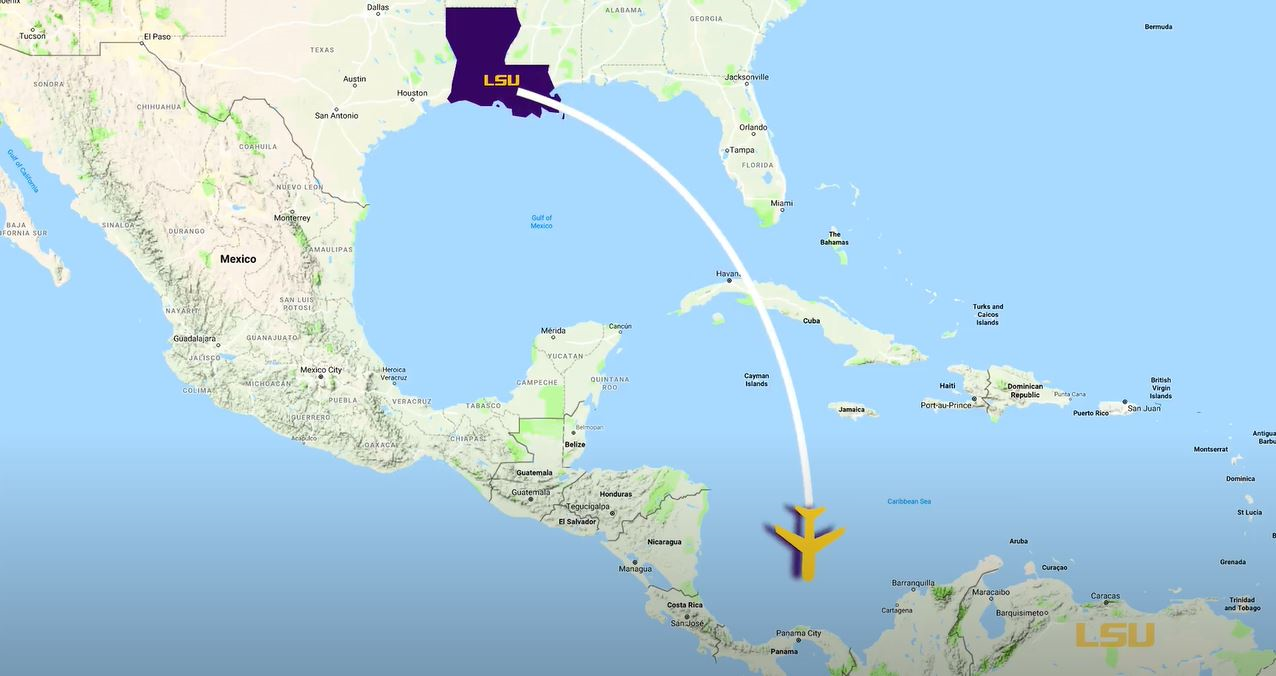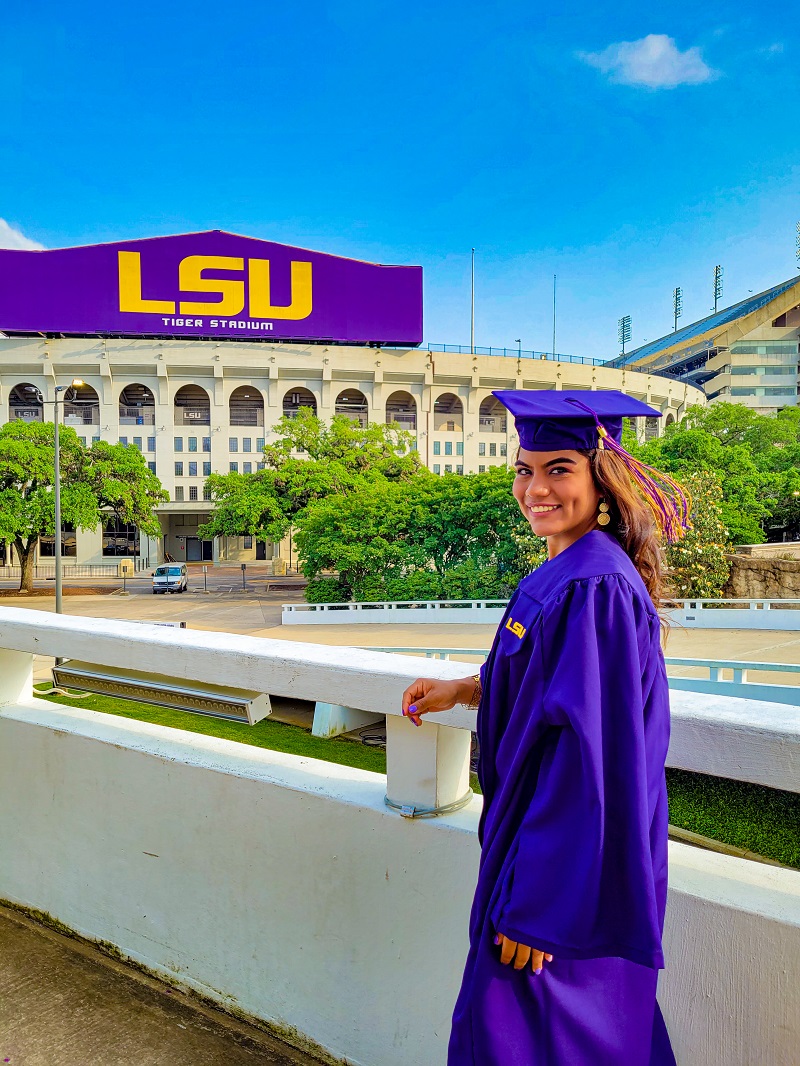LSU Nurtures Coastal and Environmental Collaboration in Panama
September 07, 2021
By Christine Wendling
For years, LSU has nurtured international collaborations with Panama to enable Panamanian industry and government leaders to make informed decisions about the conservation, management, protection, and development of coastal and environmental assets.

Louisiana is at the forefront of coastal and environmental challenges similar to Panama’s, making LSU’s location on the banks of the Mississippi River the perfect place for Panamanian students to learn about these threats to their way of life and what can be done to improve coastal conditions in the region. Panama’s strategic location as a land bridge between two oceans and the meeting of two continents—and the opening of the Panama Canal in 1914—has made it an international trading center as well as a hub for maritime and air transport. However, increased urbanization, under-regulated industrial development, and the expansion of Panama City further into the wetlands have contributed to a greater loss of habitat and biodiversity, impacts on migratory shorebird populations, reductions in offshore shrimp harvests, and increased vulnerability to flooding for low income residential communities.
Because of this, the Government of Panama established a special scholarship through the Instituto para la Formacíon y Aprovechamíento de Recursos Humanos, or IFARHU. With this scholarship, Panamanian students who aspire to bachelor's and master's degrees in water resources issues can study at one of three U.S. universities: Louisiana State University, Colorado State University and Oregon State University. In partnership with the Committee of 100’s Michael Olivier, Chris D’Elia, professor and dean of the LSU College of the Coast & Environment, or CC&E, was instrumental in establishing the scholarship when he visited Panama in 2014 on behalf of the university as part of an executive trade mission organized by the Louisiana District Export Council in conjunction with the Louisiana Committee of 100 and the U.S. Commercial Service.
According D’Elia, “The College of the Coast & Environment was selected for this exceptional collaborative opportunity because of the uniqueness of our coastal environmental science degree and the State of Louisiana’s longstanding role as a center for maritime transportation. The program’s integration of oceanography, coastal, environmental, and social sciences makes it ideal for Panamanian students to gain knowledge that they wouldn’t be able to get anywhere else. It enables them to return to Panama with the skills to implement meaningful solutions to their challenges.”

Mercedes Pinzón, LSU College of the Coast & Environment, Class of 2021.
One such scholarship recipient, Mercedes Pinzón, was the first member of her family to study outside of Panama. She graduated from CC&E with a bachelor’s in coastal environmental science on May 7, 2021, and returned to the college this fall to earn a master’s in oceanography and coastal sciences.
“In my first semester, I just fell in love with LSU—with the college, with the staff, with my friends. Everyone that I found there helped me to go through the program all the way,” Pinzón said. “LSU Global, which helps international students at the university, as well as the dean and the professors in my college were like my first family at LSU. And I knew this was the right place.”
As an undergraduate, Pinzón studied microbial respiration in Louisiana wetlands and its implications for coastal acidification with the help of her major professor, Kanchan Maiti, an associate professor in the Department of Oceanography & Coastal Sciences and expert in chemical oceanography. As a student worker, she had hands-on opportunities to work in the Coastal Restoration Processes Lab where she performed meticulous sediment weighting and grinding techniques and ran chemical tests for analysis. And Pinzón worked in the microbiology lab with Crystal Johnson, an associate professor in the Department of Environmental Sciences, where she assisted in the processing and analysis of samples from Johnson’s oyster research.
Of her time in the undergraduate program, she said, “I learned to be independent. I learned to be resilient, to adapt, and to do research.”
As a graduate student this fall, she is researching wetland cycling with John White, CC&E’s Associate Dean of Research and John and Catherine Day Professor, in the Wetland and Aquatic Biogeochemistry Laboratory.
“The work I am doing with Dr. White is related to the conditions we are facing here in Panama,” she said. “I want to learn more about the methods we need to better manage wetlands and learn through my master’s to bring new ideas and techniques that will help bring us to another level.”
They will assess the nitrogen and phosphorus cycling in Barataria Basin especially as it relates to various benthic substrates that have varying organic matter content, extractable nutrients, and microbial activity that can affect surface water quality. This research can help improve ecosystem models that are being used for freshwater diversions and for proposed sediment diversions, specifically with water quality and nutrient loading predictions.
After completing her master’s program, Pinzon’s goal is to pursue a PhD and use her newfound knowledge to work at the Panama Canal Authority or the Smithsonian Tropical Research Institute in Panama. Three other Panamanian students are currently enrolled in the College of the Coast & Environment: Denise Poveda (class of 2020 and DOCS graduate student), Jhosmira Augusto (senior, Coastal Environmental Science), and Kelvin Moreno (senior, Coastal Environmental Science).
According to Samba Dieng, senior internationalization officer and executive director of LSU International Programs, “Our Strategic Plan 2025 challenges us to lead Louisiana and impact the world, and we do this with learning experiences that are grounded in real-world challenges such as the coast and environmental problems faced by Panama. These students have an opportunity to take back what they learn from world-class faculty members at LSU, to make an impact in their own local communities.”
In addition to this scholarship, LSU is facilitating a two-way exchange of information between countries and international education opportunities for students, faculty, and staff, alongside the City of Knowledge Foundation. This not for profit, private foundation is responsible for developing the City of Knowledge Project, with the purpose of transforming a former military base by the side of the Panama Canal into a business, scientific, academic and cultural development center with a local, regional and global scope of activities. Furthermore, the university holds agreements with The Santa Maria La Antigua University and OTEIMA Technological University, respectively, to exchange faculty, students, and information and to build collaborative programs between the two universities.
Contact Christine Wendling
LSU College of the Coast & Environment
225-578-4984
[email protected]